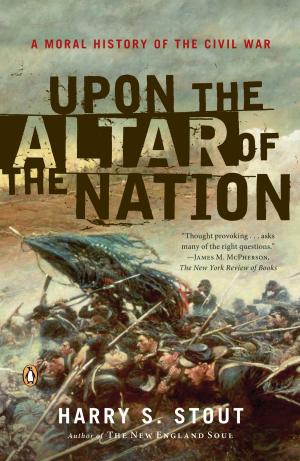Atheist in a Foxhole: One Man's Quest for Meaning
Nonfiction, Religion & Spirituality, Philosophy, Ethics & Moral Philosophy| Author: | Ruth Langhinrichs | ISBN: | 9781301375745 |
| Publisher: | Ruth Langhinrichs | Publication: | May 28, 2013 |
| Imprint: | Smashwords Edition | Language: | English |
| Author: | Ruth Langhinrichs |
| ISBN: | 9781301375745 |
| Publisher: | Ruth Langhinrichs |
| Publication: | May 28, 2013 |
| Imprint: | Smashwords Edition |
| Language: | English |
This book is a remarkable journey into the life of Richard Alan Langhinrichs--in his own words and those of his family, friends, and colleagues. It portrays a man struggling with his personal demons as he ministers to those he serves. This is a book to be picked up for moments of inspiration, to be read over and over again during times of joy, sorrow, or loneliness.
Dick Langhinrichs graduated from high school in 1938 and enrolled in Northwestern University at the age of 17 (studying drama and speech). He joined a fraternity, learned to smoke unfiltered Camels and to drink without throwing up, wanting to appear blase' because he was on a full scholarship, worked for his room and board, and only had $3.00 a week spending money. Dick was able to fulfill this ambition, partly because he could play the piano with panache and savoir faire by imitating George Gershwin (playing "Rhapsody in Blue" and the score from "Porgy and Bess"). He also learned to say, "Oh God! Not really!", which was the ultimate put-down by college students in those days.
But Dick soon learned that one had to be very careful to avoid the "queer" label because everybody knew all male actors were homosexual.
And you also had to avoid being labeled a "brain" which Dick says in jest he went to considerable lengths to hide.
In addition, Dick was very active in the peace movement and in the campaign of Norman Thomas when he ran for President of the United States in 1940. During this time, Dick quickly became disabused of his religious ideas, and learned for the first time there were good things about Franklin Delano Roosevelt, in spite of his father's perception that Democrats were warmongers and Republicans were more peace-seeking. Dick was a prolific reader and began to form his own opinions. (In the Appendix, there is a reading list compiled by Dick that influenced his philosophy and his quest for meaning.) He came to the conclusion that happiness comes from our imaginations, from our ability to envision a world better than the one in which we live, and from our experiences with our families, with our neighbors, with our friends, and with being playful by doing mindless activities occasionally.
This book is a remarkable journey into the life of Richard Alan Langhinrichs--in his own words and those of his family, friends, and colleagues. It portrays a man struggling with his personal demons as he ministers to those he serves. This is a book to be picked up for moments of inspiration, to be read over and over again during times of joy, sorrow, or loneliness.
Dick Langhinrichs graduated from high school in 1938 and enrolled in Northwestern University at the age of 17 (studying drama and speech). He joined a fraternity, learned to smoke unfiltered Camels and to drink without throwing up, wanting to appear blase' because he was on a full scholarship, worked for his room and board, and only had $3.00 a week spending money. Dick was able to fulfill this ambition, partly because he could play the piano with panache and savoir faire by imitating George Gershwin (playing "Rhapsody in Blue" and the score from "Porgy and Bess"). He also learned to say, "Oh God! Not really!", which was the ultimate put-down by college students in those days.
But Dick soon learned that one had to be very careful to avoid the "queer" label because everybody knew all male actors were homosexual.
And you also had to avoid being labeled a "brain" which Dick says in jest he went to considerable lengths to hide.
In addition, Dick was very active in the peace movement and in the campaign of Norman Thomas when he ran for President of the United States in 1940. During this time, Dick quickly became disabused of his religious ideas, and learned for the first time there were good things about Franklin Delano Roosevelt, in spite of his father's perception that Democrats were warmongers and Republicans were more peace-seeking. Dick was a prolific reader and began to form his own opinions. (In the Appendix, there is a reading list compiled by Dick that influenced his philosophy and his quest for meaning.) He came to the conclusion that happiness comes from our imaginations, from our ability to envision a world better than the one in which we live, and from our experiences with our families, with our neighbors, with our friends, and with being playful by doing mindless activities occasionally.















